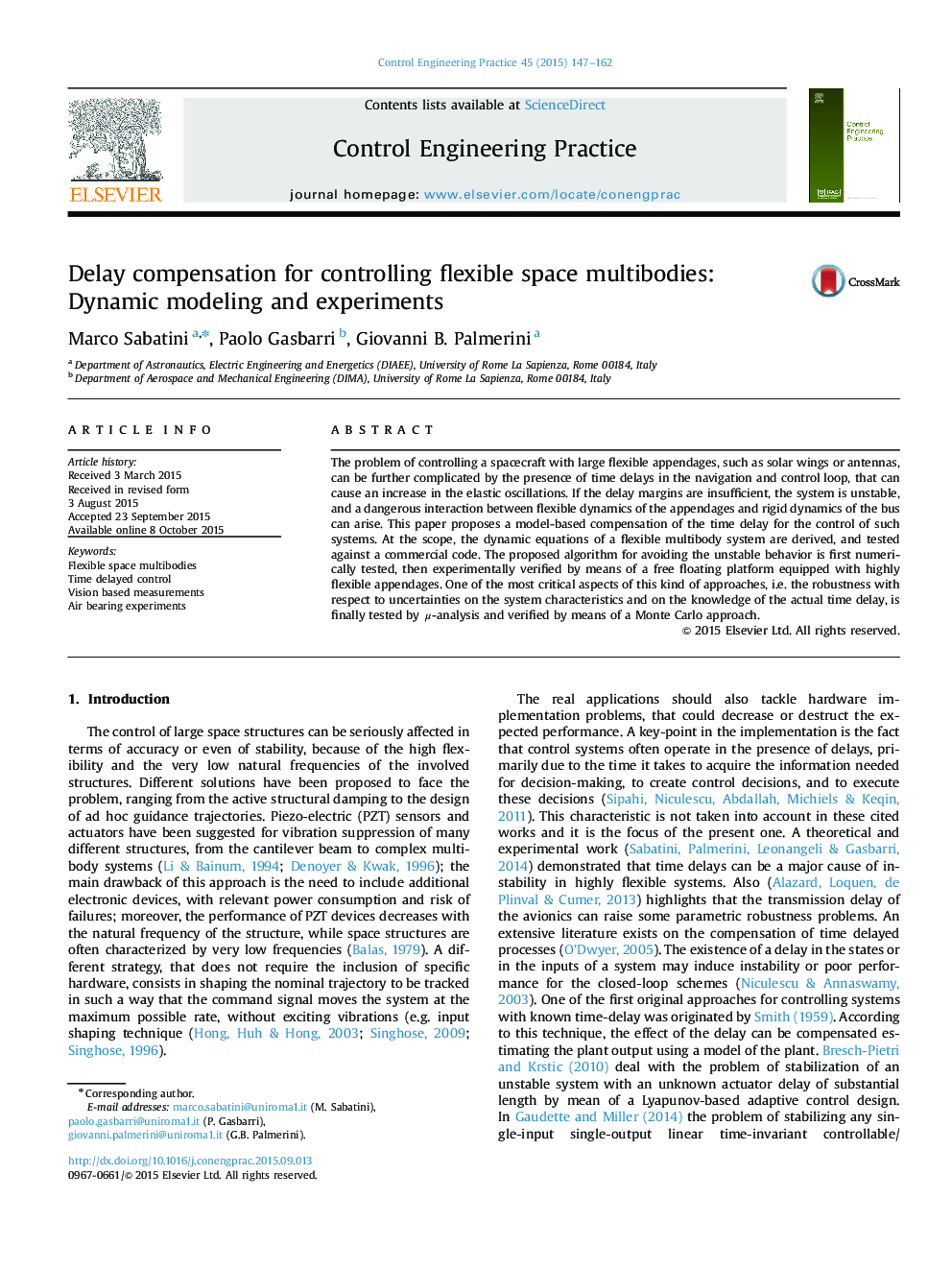| Article ID | Journal | Published Year | Pages | File Type |
|---|---|---|---|---|
| 699264 | Control Engineering Practice | 2015 | 16 Pages |
The problem of controlling a spacecraft with large flexible appendages, such as solar wings or antennas, can be further complicated by the presence of time delays in the navigation and control loop, that can cause an increase in the elastic oscillations. If the delay margins are insufficient, the system is unstable, and a dangerous interaction between flexible dynamics of the appendages and rigid dynamics of the bus can arise. This paper proposes a model-based compensation of the time delay for the control of such systems. At the scope, the dynamic equations of a flexible multibody system are derived, and tested against a commercial code. The proposed algorithm for avoiding the unstable behavior is first numerically tested, then experimentally verified by means of a free floating platform equipped with highly flexible appendages. One of the most critical aspects of this kind of approaches, i.e. the robustness with respect to uncertainties on the system characteristics and on the knowledge of the actual time delay, is finally tested by μμ-analysis and verified by means of a Monte Carlo approach.
